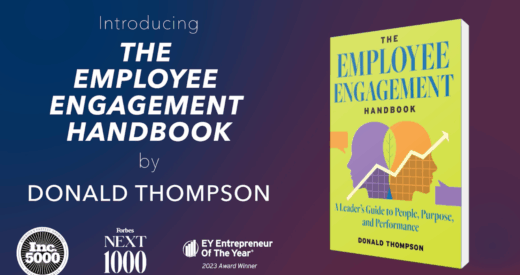This article was originally published on Forbes.
“You know, we have a prosecco that’s a little less expensive.”
My husband and I are entrepreneurs, and after several years of nonstop business-building, we decided to treat ourselves to a short vacation and some poolside downtime at a luxury hotel; finally, without a care in the world (at least for a few days). I often talk to my teammates about the importance of self-care, so I wanted to put my own advice into practice.
Champagne felt like the perfect way to celebrate the moment. I ordered a carafe, but the server directed me to the budget prosecco options instead. While I appreciate recommendations from servers on best dishes and good wine selections, her tone was more of a sympathetic whisper. In that moment, I was reminded that no matter what I do, no matter what I’ve accomplished, to some, I’ll always be “just a Black girl.”
This champagne-to-prosecco narrative was also shared in the recent movie Antebellum but at an upscale restaurant. I remember exclaiming, “That happened to me!” and then wondering how many times this or similar situations have occurred for underrepresented people everywhere. Of course, Gabourey Sidibe had a more impressive response than my furrowed brow and terse, “The champagne, please.” I recall sitting quietly, sipping my bubbly beverage and contemplating if I would ever return to that hotel. (I haven’t.)
For businesses, these microaggressive moments, although seemingly minor or inconsequential at first glance, actually present a major issue. If your managers or executives are insulting your employees, what sort of workplace culture does that create? And, if your frontline employees are offending your customers, how much does that cost your organization? According to research, poor customer service costs companies over $75 billion each year.
Racial narratives surrounding success and accomplishment persist throughout society. In many ways, we’ve made progress: Black professionals are now more educated than ever before and many organizations are realizing their own unconscious bias. Yet underrepresented individuals continue to face daily reminders of the assumptions people make about who we are and what we are capable of.
These narratives don’t keep us from succeeding, but they do make it a little bit harder. We must confront them and cope with them every day, just as I did at the hotel: assumed narratives about our socioeconomic status, level of education and much more.
The fact of the matter is that we all carry unconscious biases that derive from larger narratives in our culture. If you haven’t already seen it, P&G recently released a short commercial called “Widen the Screen” that challenges the assumptions that we make about Black people in our society.
Identity-related narratives within the workplace are no less pernicious. As a result of bias, Black professionals face significant barriers to upward mobility, lagging behind their white colleagues with regard to promotions, managerial positions and pay equity.
Why should we care about whether our biases lead to microaggressions, exclusion and reducing others to their racial identities? There are two reasons, really: First, we should all want to be better people. As human beings, our fate is inextricably connected, and we need each other’s support and compassion to continue making progress as a society. It should come as no surprise that empathy is linked to innovation and creativity.
And second, confronting unconscious biases to create a more inclusive workplace is simply good for business. Recent studies demonstrate that more equitable and just organizations unleash workplace excellence and profitability. For example:
- According to a study by Boston Consulting Group, diverse teams produce 19% more revenue.
- Companies with the most ethnically diverse boards are 33% more likely to outperform less-diverse companies in profitability.
- Teams that follow an inclusive process make decisions twice as fast with half as many meetings.
- While the S&P 500 saw a 35.5% decline in stock performance between 2007 and 2009, companies that were highly diverse and inclusive saw a 14.4% gain.
As a certified diversity executive, I’ve worked with many businesses to deconstruct false narratives about race and achievement. Here are my recommendations for doing your part to promote workplace equity and inclusion:
- Learn to recognize your biases. Be honest with yourself about what you may falsely assume of people from certain groups, and consider why you may have adopted these narratives.
- Don’t be offended when you’re challenged. If someone calls you out for contributing to a false racial narrative, welcome that as an opportunity to educate yourself. Unlearning our biases is an ongoing process.
- Learn more about the experience, resilience and contributions made by those who have been marginalized. Underrepresented individuals have been transcending preimposed narratives about themselves for ages: Think of the Black women mathematicians who performed essential calculations during the Space Race.
The more we recognize our own biases and pick out narratives as we are exposed to them in our daily lives, the more likely we are to inform ourselves of the truth — and change our behaviors. When we create a better place for our colleagues, employees and customers, we build confidence, trust and loyalty: all foundational to sustained success in the workplace and in our communities.






